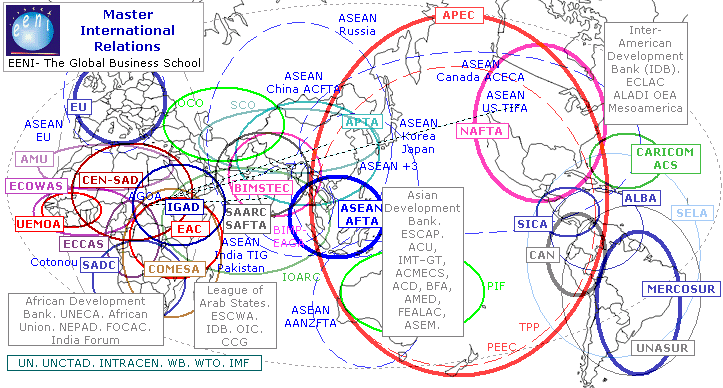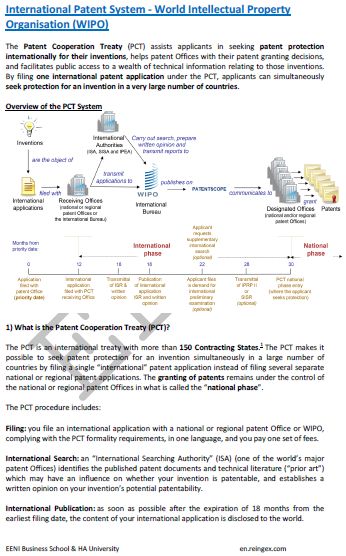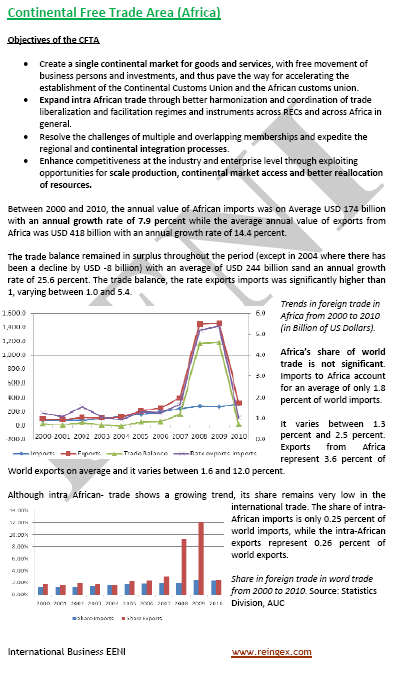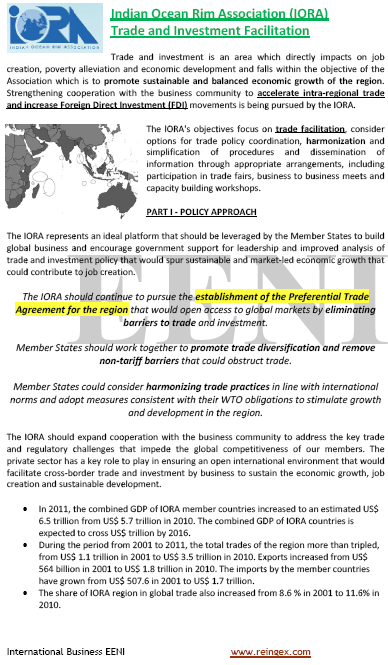Globalization, Regionalization, WTO (Master)
Global Economy, World trade, Trade Agreements in Asia, Africa, Europe

Study Methodology - EENI Global Business School.
The main subjects (learning units) of “Globalization and Regionalization” Area of Knowledge are:

Online Courses, Masters and Doctorate related to Globalization and Regionalization:
Languages:  or
or  Globalización
Globalización  Mondialization
Mondialization  (free multilingual training).
(free multilingual training).
- Credits of the module “Globalization”: 6
 (European Credit Transfer and Accumulation System)
(European Credit Transfer and Accumulation System) - Download the syllabus “Globalization” (PDF)
- Duration: 5 weeks
- Methodology: e-learning/Online

Course: AI for Global Business
The goals of the Area of Knowledge “Globalization and Regionalization” offered by EENI are the following:
- To understand the concept of globalization (or globalisation in American English) and its influence on International Business
- To learn about world's major economic institutions related to Globalization
- United Nations
- Conference on Trade and Development (UNCTAD)
- International Trade Centre (ITC)
- World Bank
- World Trade Organization (WTO)
- International Monetary Fund
- Organization for Economic Cooperation and Development (OECD)
- ...
- To learn about regionalization in Asia, Africa, America, Europe, and the Middle East
In the last few years, the world Economy has gone through some major changes, the result of which has been the creation of a global market. With the establishment of WTO, almost all the economies in the World are likely to establish a more and more interdependent relationships with each other.
Globalization means that flows of products, services, capital, technologies, and people are spreading worldwide, countries everywhere open up to a wider contact with each other.
Regionalization.
Regionalism is described as “actions taken by Governments to liberalize or facilitate trade on a regional basis, sometimes through Free Trade Areas or customs unions.”
If we take into account the Regional Trade Agreements (RTA), which are in force but have not been notified, those signed but not yet in force, those currently being negotiated, and those in proposal stage; we arrive at a figure of close to 400 RTAs which are scheduled to be implemented.
Of these RTAs, the Free Trade Agreements and partial scope agreements account for over 90%, while customs unions account for less than 10%.
Globalization and regionalization: main agreements and institutions.


Sample:

(c) EENI Global Business School (1995-2025)
Top of this page











 WhatsApp
WhatsApp